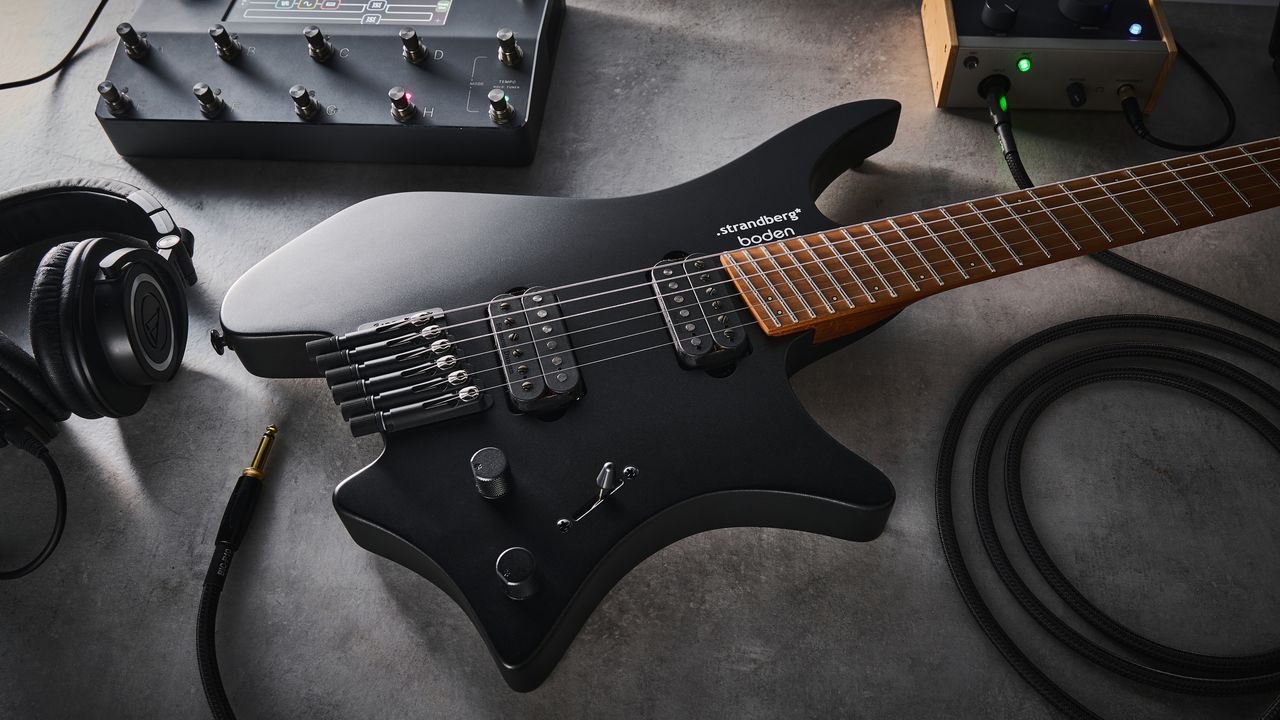
What is it?
Despite guitar heroes in Eddie Van Halen and Allan Holdsworth being advocates of early headless guitar designs – in this case, Steinbergers – it wasn't until Swedish luthier Ola Strandberg launched his namesake brand in 2012 that axes without headstocks were deemed anything other than a gimmick.
Since then, with a little help from their poster boy Plini, the tide has turned pretty monumentally, with modern metal and prog artists in particular leading their surge in popularity. A raft of imitators have followed in Strandberg's wake, too, further underscoring how much of a game-changer these Swedish-designed, Indonesia-built guitars have been.
Many traditionalists are quick to turn their noses up at their odd, Dali-draws-a-puddle-like shape, and headstock-less visage, but everything has been designed for the human body, not surrealist aesthetics. The angular, trapezoidal EndurNeck, in particular, drew inspiration from a TV remote in a bid to encourage improved, more natural hand positions, with every curve and contour catering for how it rests against the player.
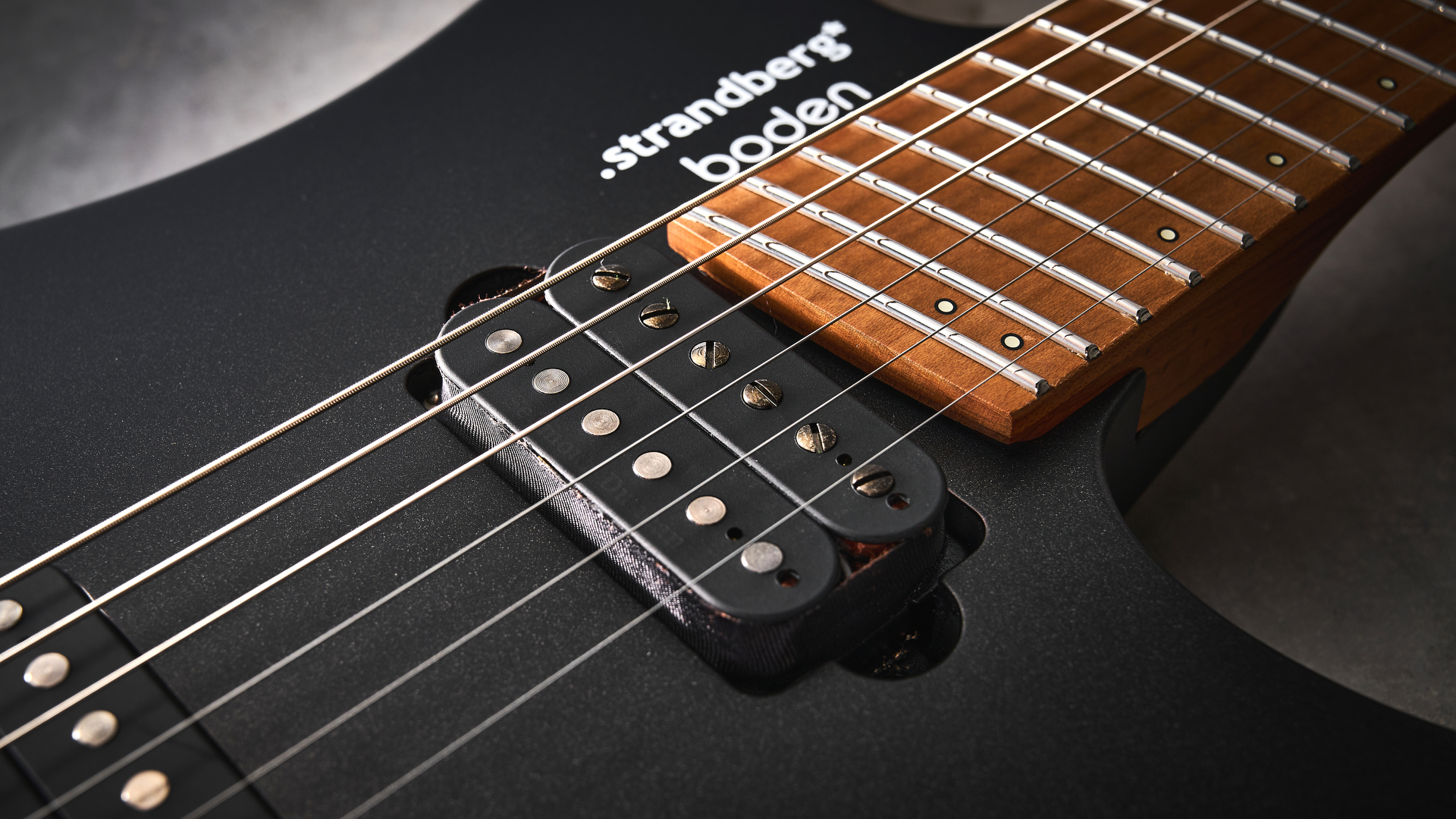
The Boden is Strandberg's flagship creation, and the N2 is its next-generation edition. Its forearm contour is thinner and more refined, and its top is curved, while its OEM pickups are out for this Standard model; Seymour Duncan’s tried-and-tested Sentient/Pegasus passive humbuckers are in.
Elsewhere, its maple neck and fingerboard are now roasted, and the EGS Arc Cast Zinc bridge, which was successfully introduced in the Essential model, replaces the EGS Series 7 tremolo of the NX series. It teams up with a titanium-reinforced EndurNeck and seems simply allergic to falling out of tune.
All in, that’s not catastrophically different from its predecessor. The basswood body, 25”-25.5” multi-scale, and 20” radius are locked in place, while the price point has crept up by $100, and so the quintessential recipe for its more affordable, but still luxuriously equipped electric guitar isn’t ripping up the rule book. Strandberg is sticking to its guns, so has prioritising nuance paid off?
Specs
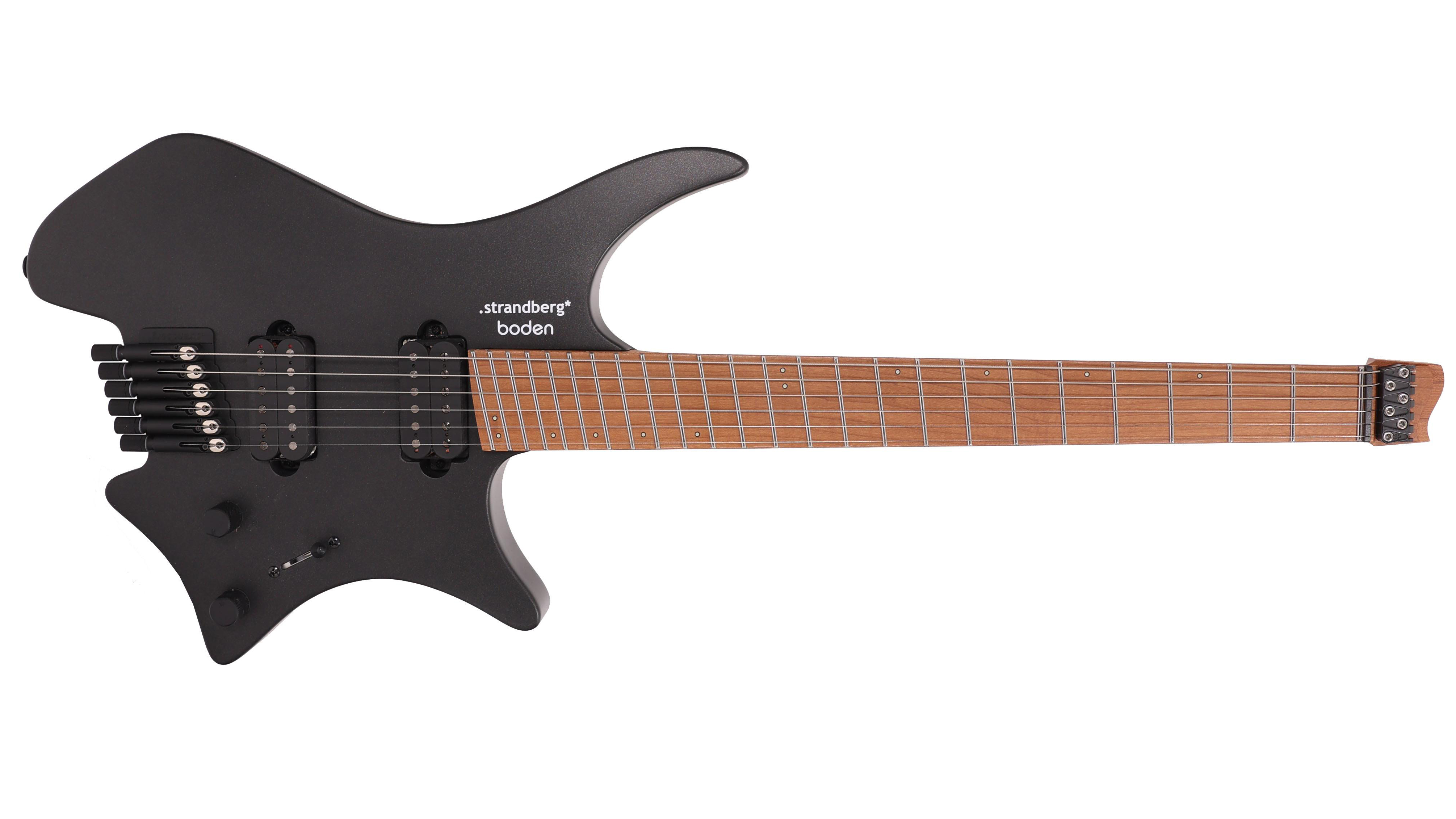
- Launch price: $1,799 / £1,699/ $1,999
- Made: Indonesia
- Type: Solid-body electric guitar
- Body: Basswood
- Neck: Roasted maple EndurNeck, bolt-on
- Fingerboard: Roasted maple, 20” radius
- Scale length: 25” - 25.5”
- Nut width: 1.65”
- Frets: 24, medium jumbo, stainless steel
- Hardware: Strandberg* EGS Arc hardtail bridge and string lock
- Electrics: Seymour Duncan Sentient/Pegasus humbuckers, five-way pickup switch, Tone and Volume controls
- Weight of test guitar: 4lbs 15oz / 2.23kg
- Left-handed options: No
- Options: 7-string ($1899), 8-string ($1999)
- Finishes: Black Satin Metallic (as reviewed), Transformative Teal Metallic
- Case/gig bag: Strandberg gig bag
- Contact: Strandberg
Build quality
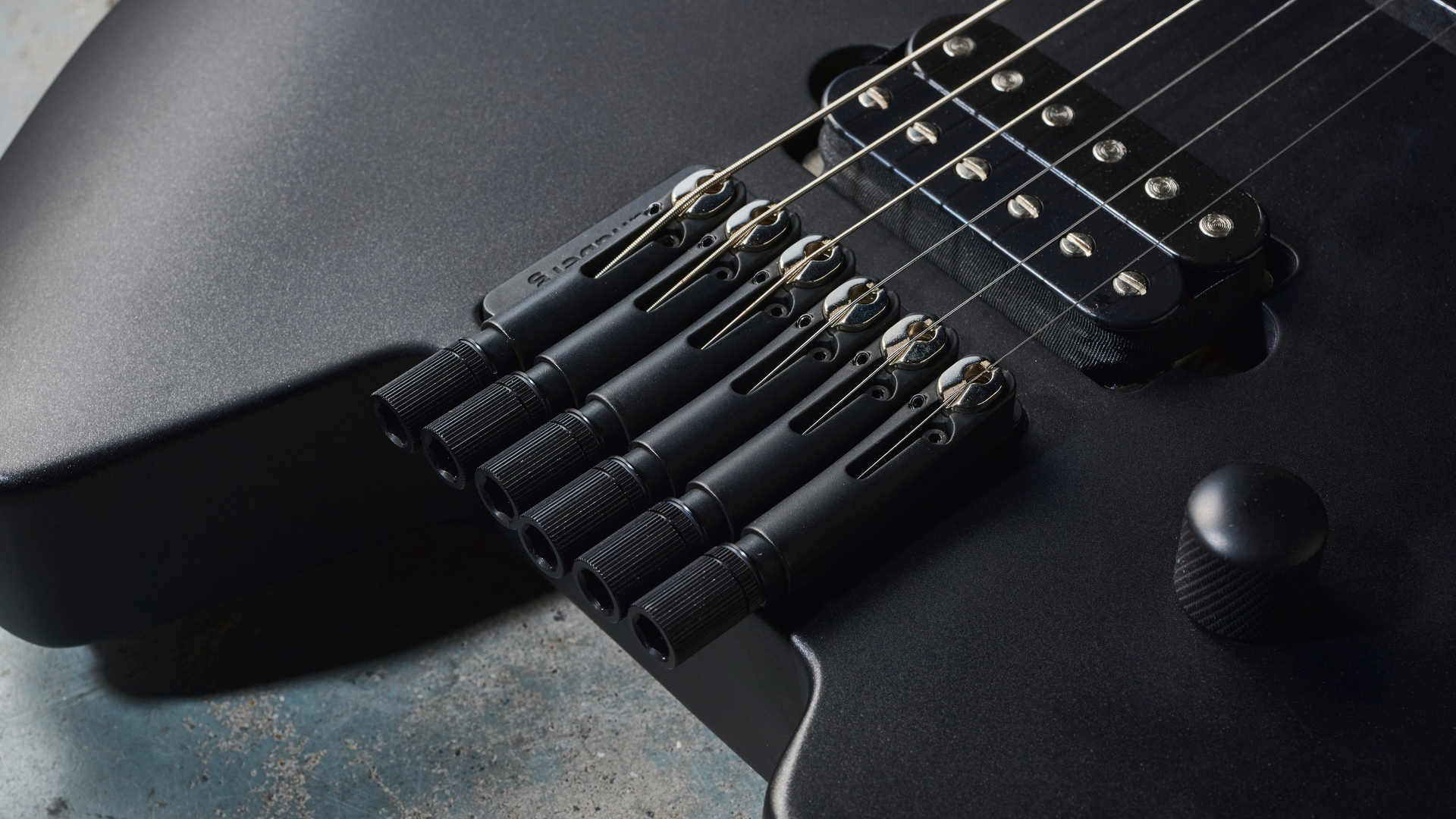
Build quality rating: ★★★★★
While not quite as well-appointed as its fancier sibling, the Boden N2 Original, the Standard is hardly left to fend for scraps, and in terms of craftsmanship, it’s difficult to fault. While the basswood body isn’t chambered, it is incredibly lightweight, molds to my body shape, whether playing stood up or seated in various positions, and exudes a sort of sci-fi quality.
Everything is sleek and finished to an extremely high standard. I couldn't find any rogue sharp edges or imperfections. The five-way switch is sturdy, as if it can withstand rigorous touring; the straight lines cut into the knobs, complete with their grippy finish, are great to the touch, and the fretwork is immaculate.
The trapezoidal neck profile naturally encourages an advantageous hand position. It isn't uncomfortably forced, like having to sit up straight and proper for your school photo, and that makes playing for extended periods a breeze. Impressively, too, it feels like a neck-through. At no point does my hand meet with a bulky neck neel and impede access to the higher frets.
Strandberg's bridge design has gone through a few iterations now, and while this version debuted on its first sub £1K instrument, that doesn't mean that it reappears here as a cost-saving measure; the Original has the same bridge.
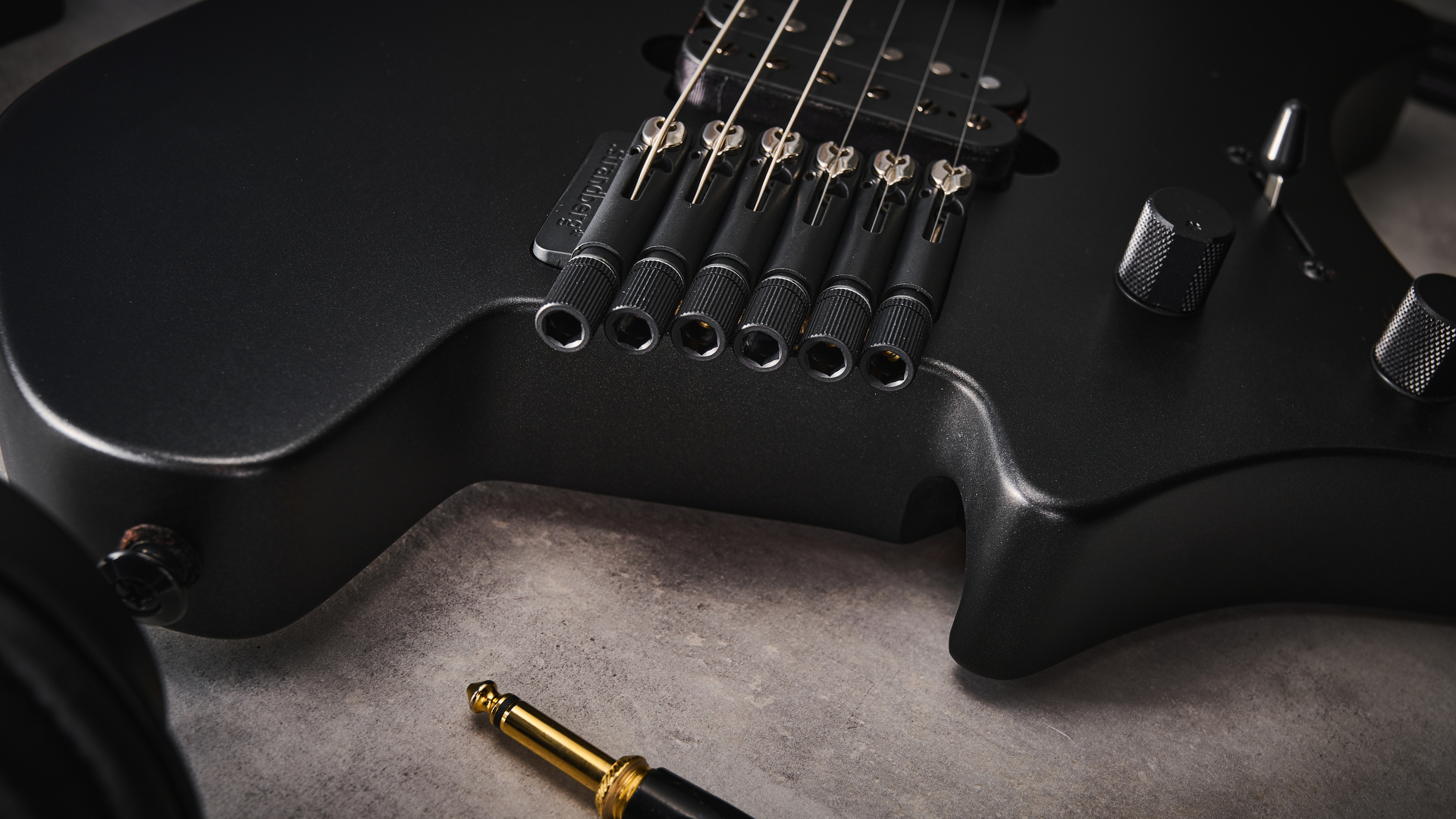
After three days away, the tuning hadn't budged an iota
Tuning adjustments are made by rotating the gear-like 'pegs' that protrude from the bridge, and can be very fine; they're highly reactive to the touch.
The Zinc baseplate might, for the cynical types, represent affordability over luxury, but its overall performance, to me, doesn't do likewise. Tuning stability here is one of the best I've experienced. After three days away from playing the guitar for a trip to sunny Spain, I came back, strummed a chord, and the tuning hadn't budged an iota. That's a guitar built for travel; be it globetrotting tours littered with flights and temperature changes, or a one-man sojourn with this thing as your trusty companion.
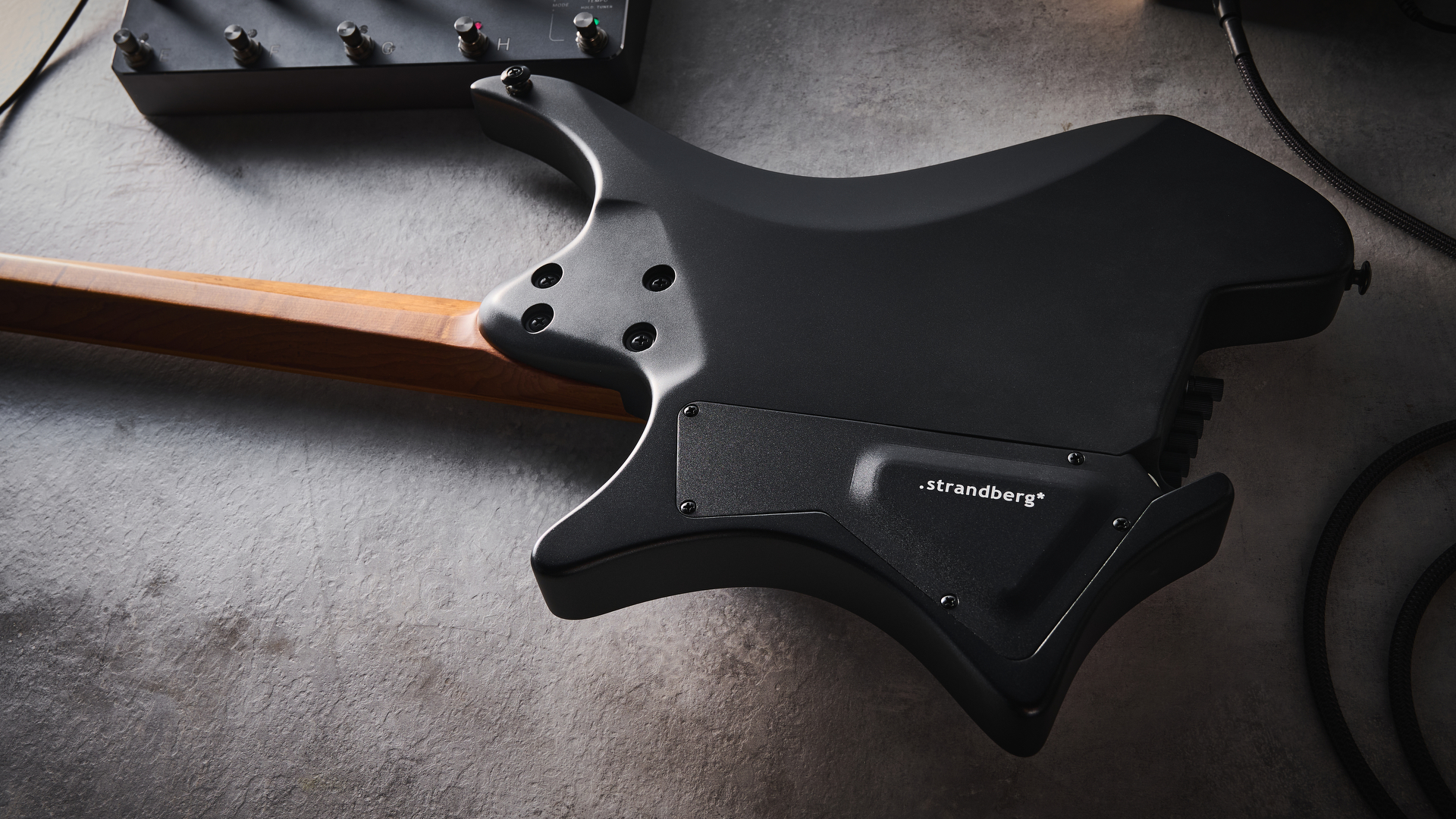
In a few of the Strandberg community groups I'm in on Facebook, the admittedly surrealist-looking backplate has been on the receiving end of criticism for how it looks. Personally, I'm quite into it, although it does suit the Black Satin Metallic finish more than the Transformative Teal Metallic, as it matches the body.
More importantly, it's made of metal, rather than the plastic you see on many other guitars. Unscrewing it to take a look underneath, I found ample room for a 9V battery, should you wish to switch to active pickups. That's forward planning.
Playability
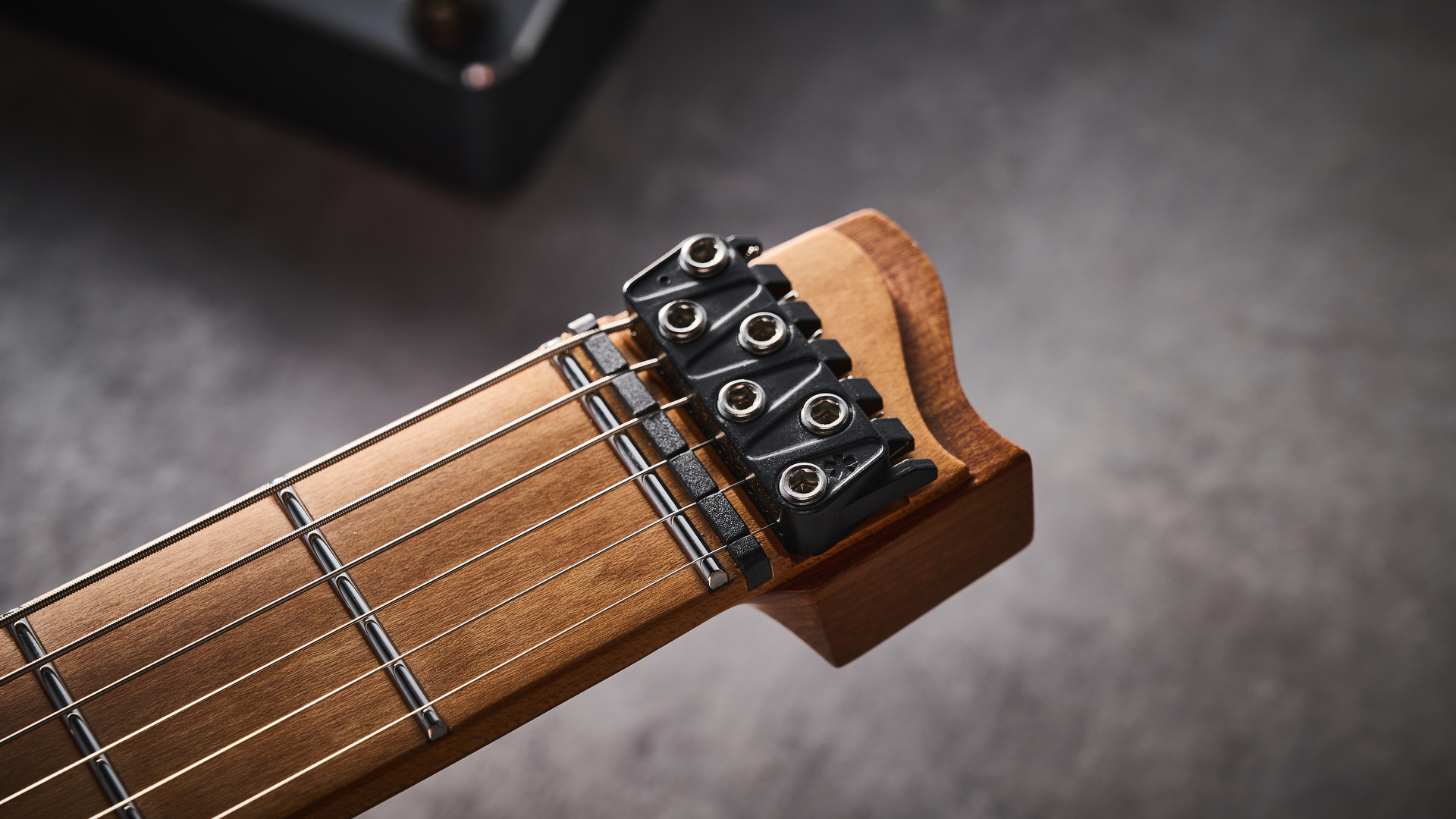
Playability rating: ★★★★★
Of course, the first thing most purist players do when they first see a Strandberg is bawk. Its peculiar shape and lack of a headstock are alien concepts, and it is an alien-looking instrument. But, embrace this guitar with an open mind, and its quirky visage will soon make perfect sense.
It's built to harmonise with the player, and the supreme build quality certainly aids that
Take the EndurNeck, for instance. It's designed to encourage a better hand position, which it does, and it even makes the wonky frets make sense right off the bat, although newbies to fanned frets may get a little dizzy when soloing on the higher strings and frets at first. It is, in all, built to harmonise with the player, and the supreme build quality certainly aids that.
The angle of the neck lets my - or any other player's - thumb sit very naturally, providing a grip that gives you complete dominion over its welcoming 20" radius fretboard.
It's not quite akin to the kind of supermodel-thin necks found on Jackson guitars in the sense that it acts as steroids for the speeds you can reach, but it makes playing effortless, like you're skimming atop the surface of a body of water, rather than trudging through it, knee deep.
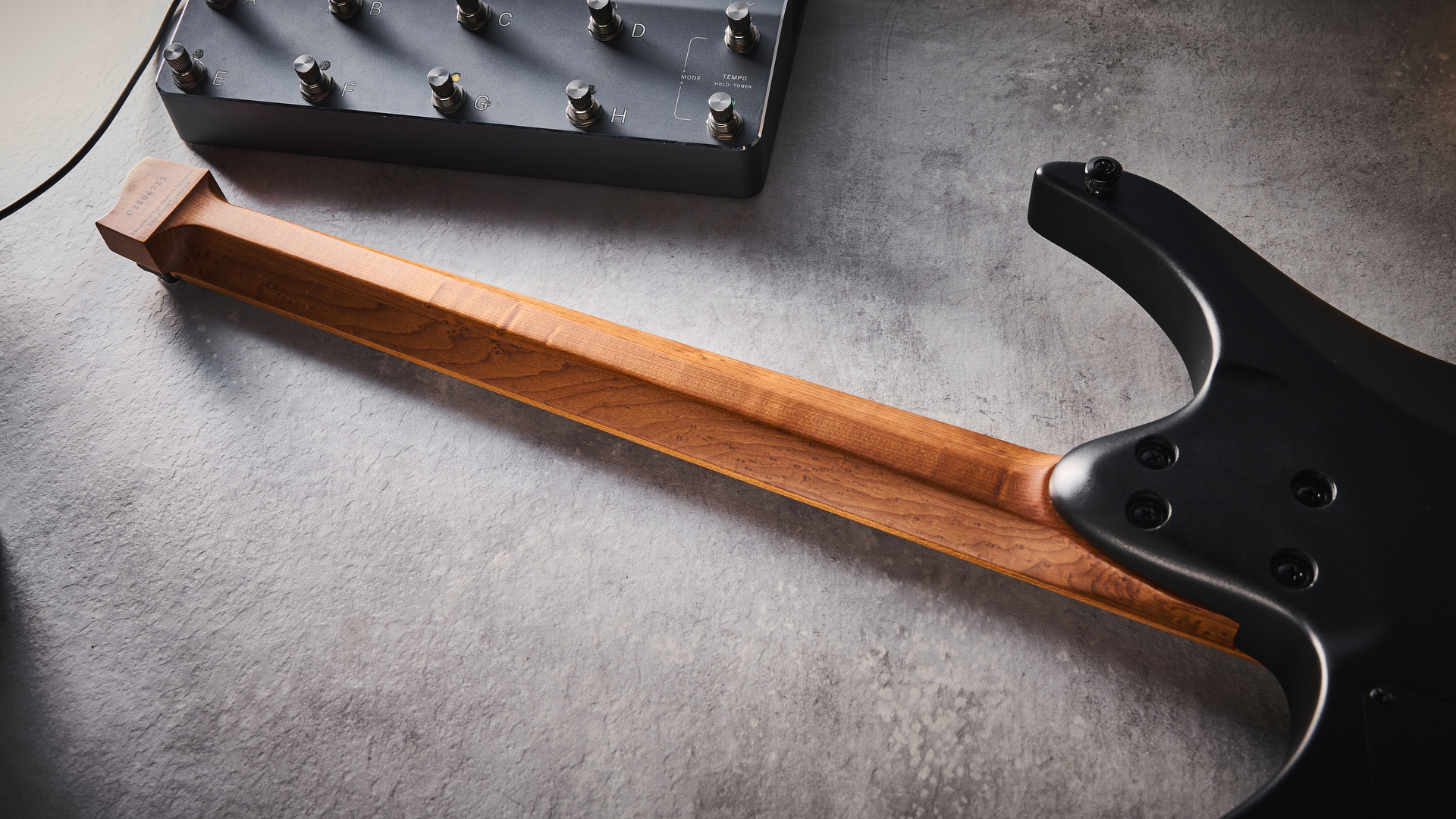
I've been a Strandberg convert for nearly five years, so the ease of playing with these guitars isn't new to me. For those who aren't, it's important to kick preconceptions, or complaints about the fact that the neck isn't in a traditional C- or D-shaped profile, to the curb and just play.
Out of the box, the action was pretty swift, with only the 24th fret of the high e lacking a little sustain, which honestly feels like splitting hairs. String height can be adjusted at the saddles by loosening the strings, loosening the locking screw with the included hex key and turning the saddle counter-clockwise to raise the height and clockwise to lower. For those wanting to alter the neck relief, the truss rod can be found at the top of the neck and is easily accessible.
If I were to point out any minor gripes, it would be that the very highest frets on the e and B strings are tightly packed together. That really necessitates precision playing, and so it might not be the perfect platform for girthier fingers to shred Yngwie Malmsteen on. But it's a small blemish on an otherwise gorgeously playable electric guitar, and one perhaps partly attributed to my Strandberg being an eight-string.
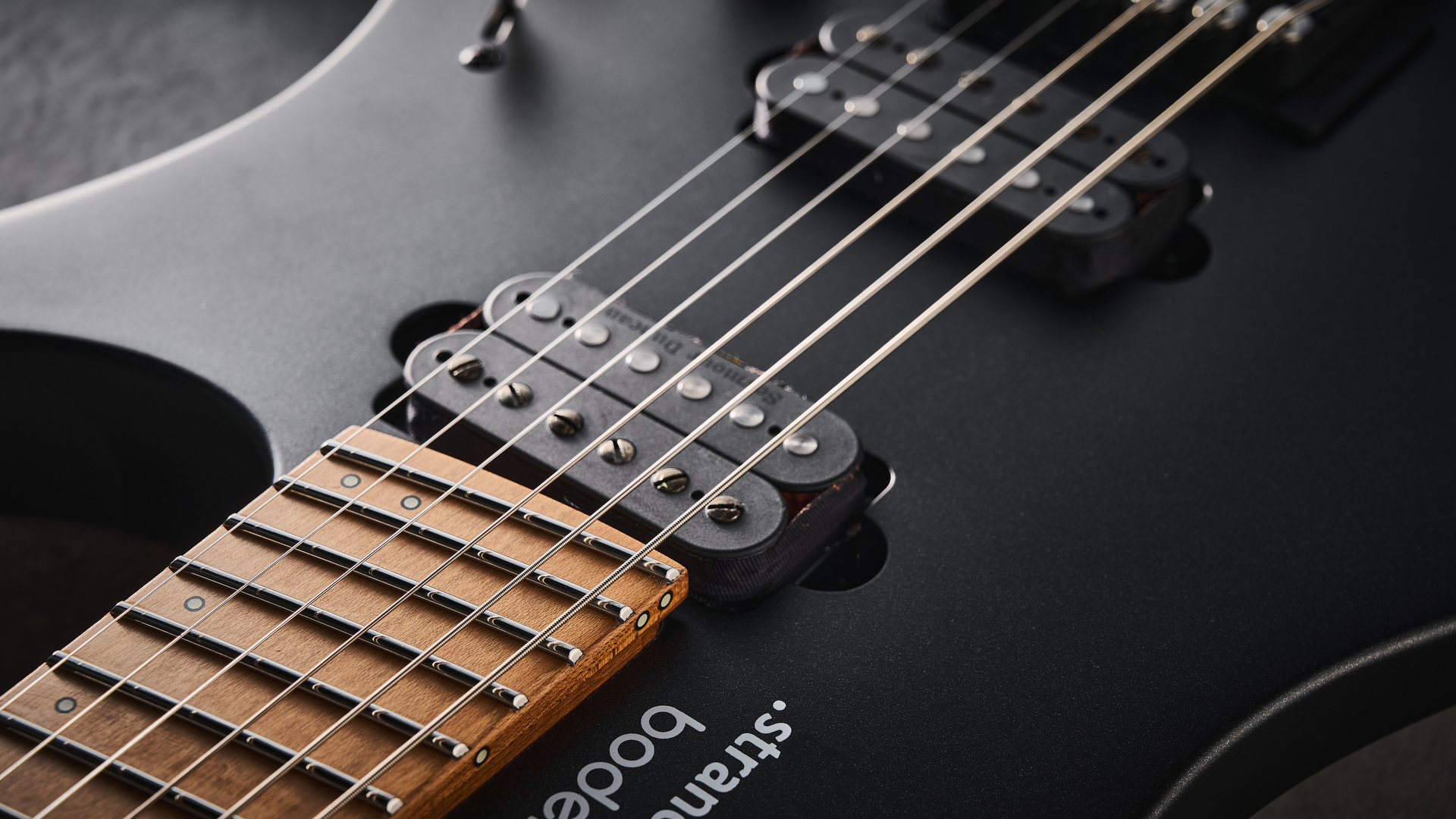
In the 71 years of the Stratocaster's existence, its recipe and aesthetic has hardly altered, Strandberg challenges that concept in every single way
Overall, I'm yet to find a more playable instrument, regardless of string count, whether its frets look like they were made in a house of mirrors, or the generation of build. So, if you're sitting on the fence or won't even approach it, I'd urge you to reconsider.
Change can be a scary thing. In the 71 years of the Stratocaster's existence, its recipe and aesthetic have hardly altered, with many thinking that it simply doesn't need to. Strandberg challenges that concept in every single way, drawing from the future rather than nostalgia.
Every player should give a Strandberg a test drive at some point, even just for five minutes. I find the difference in playability night and day, and pleasingly, it doesn't ruin other guitars for me. Swapping between Strandbergs and Fenders, Chapmans, and so on doesn't leave me missing the EndurNeck. But as a playing experience, it's of its own making.
Sounds
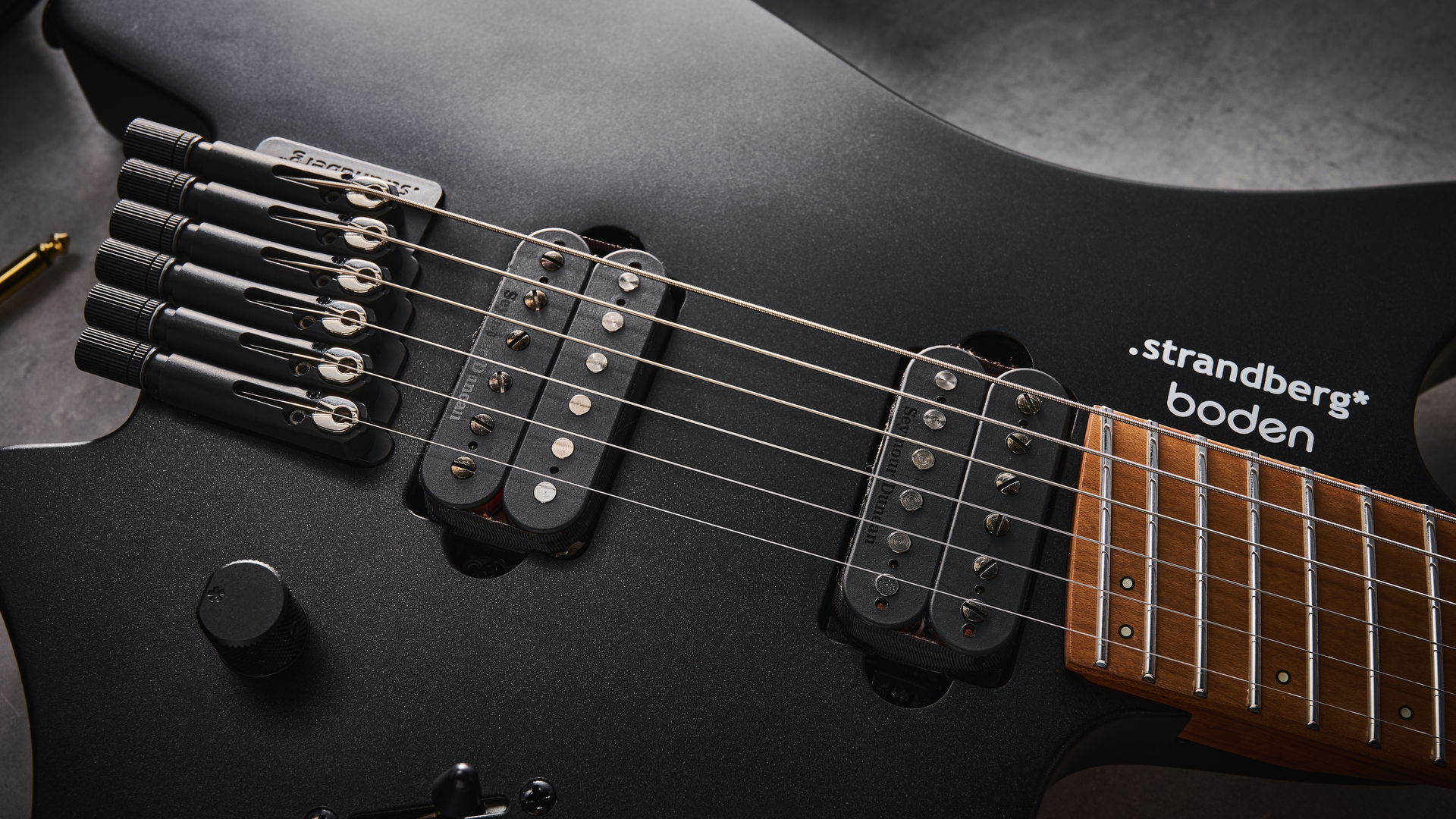
Sounds rating: ★★★★½
The headline change with this new iteration of the Standard is the pickups. Strandberg OEMs have been ousted for Seymour Duncan’s Sentient/Pegasus humbuckers pairing. That does make this guitar a little more metal-centric, but with hugely impressive articulation and responsiveness to the limited-but-effective tone controls, it certainly has a reach beyond those realms alone.
That being said, it handles disgustingly heavy sounds with incredible grace. Putting the guitar through the dirtiest, fuzziest amp setting I could – the Chainsaw Fuzz preset from Atlas DSP’s Your Last Steps – and strumming some maj7 and add9 chords, every note still cut through the grit really well.
The pickups use Alnico 5 magnets, nickel silver bottom plates, custom winding specs, and are vacuum wax potted, which does well to quell banshee screams of feedback in even the highest gain settings. And sure, the pickups have been employed with heaviness in mind, giving lead lines a real fluidity and clarity even when drenched in reverb and wild delay pedals, but they're not left exposed when the gain is dialled down.
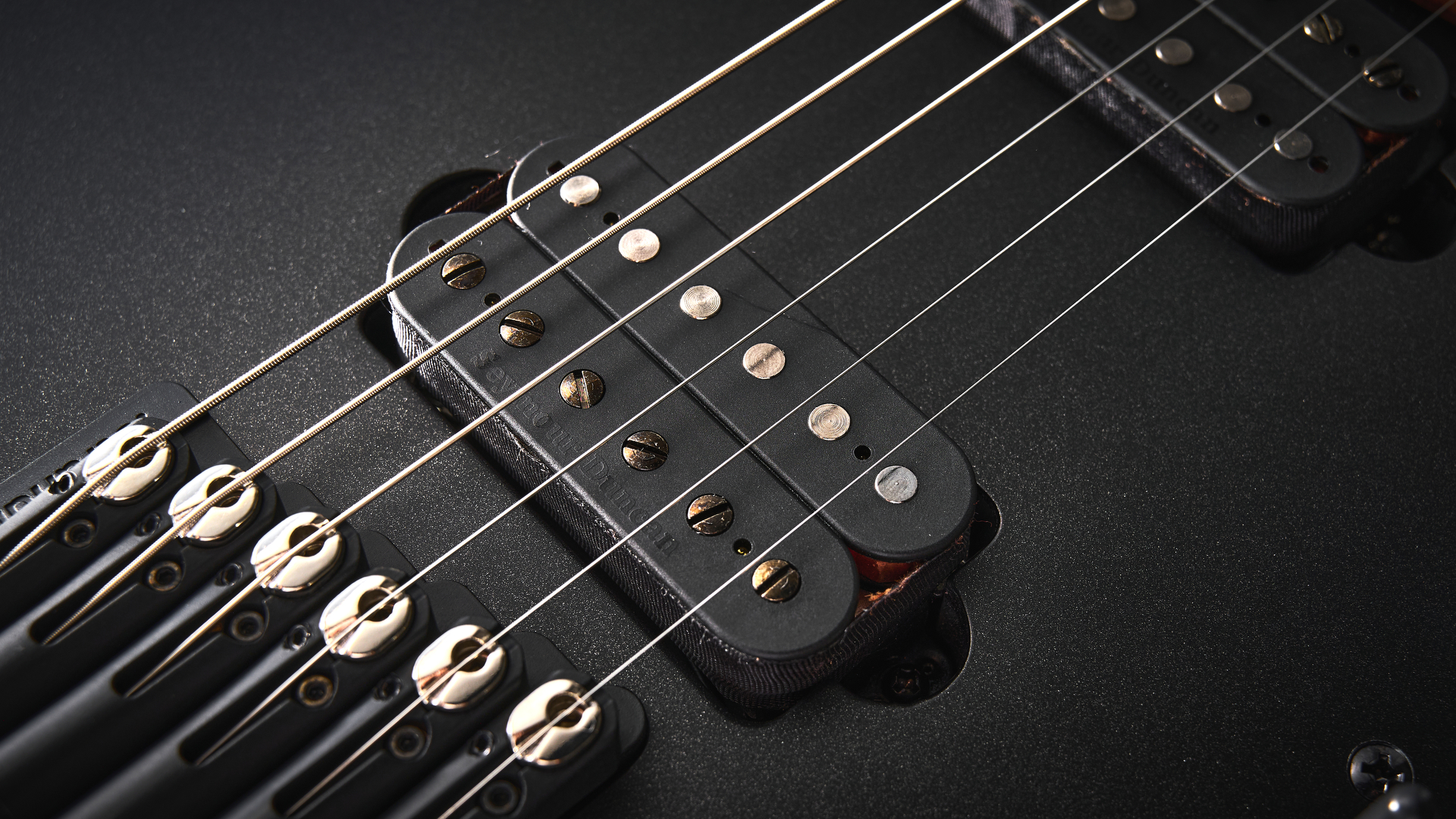
Whatever sounds you want to come purring out of this thing, it won't leave you wanting
The volume control does a lot of heavy lifting, turning balls-out, high-gain tones into crunchy classic rock overdrives that, on the EVH 5150 I played it through, screamed Led Zeppelin’s Physical Graffiti. Use this lovingly, and you’ll get great mileage out of even the most streamlined rig.
On the cleaner side, there’s a real chirp and chime to the pickups, with plenty of high-end, especially in fifth position. There's a little more warmth without getting too fluffy as you flick through the positions towards the bridge.
Coil taps are typically reserved for more expensive Strandberg’s, and there’s no exception here. For someone who loves jumping between beefy metal tones and spanky Tele sounds on the fly, that’s a shame, and the fourth position doesn’t give a twang that’s quite as satisfactory. Its default is pretty warm and rounded.
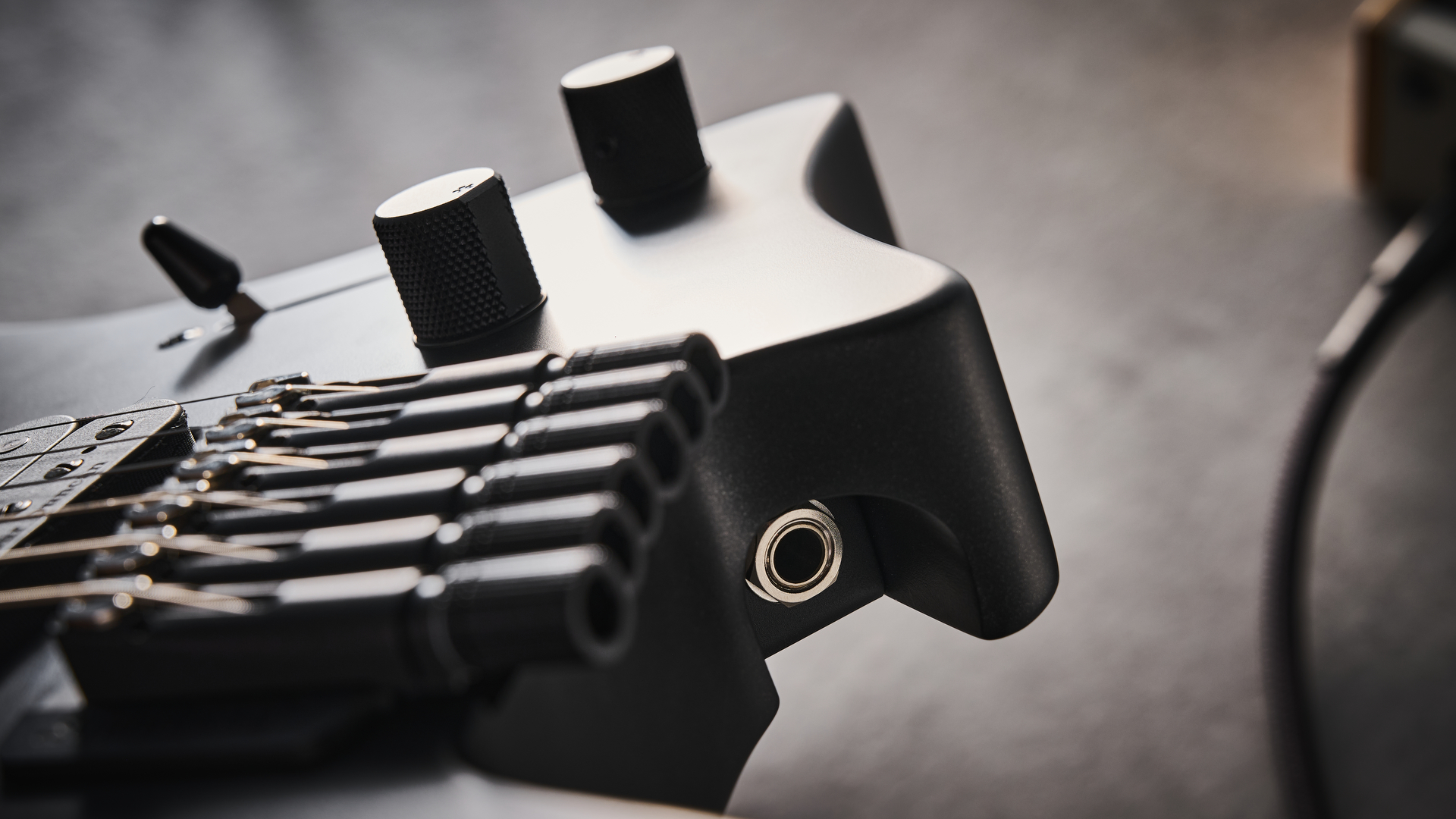
The Seymour Duncan's add a more earthy quality that I'm really enjoying
As someone who is used to playing Strandbergs with Fishman pickups, it's a whole new experience having these pups at my disposal. Fishmans make sense because they sound futuristic, it's very much in keeping with the theme, but here, the Seymour Duncan's add a more earthy quality that I'm really enjoying. It plays like a precision machine, but it sounds far more natural than that.
Ultimately, its coaxable tones are chameleon-like. The guitar may have been adopted in prog metal circles, but it can be employed in just about any musical setting. Whatever sounds you want to come purring out of this thing, it won't leave you wanting.
Verdict
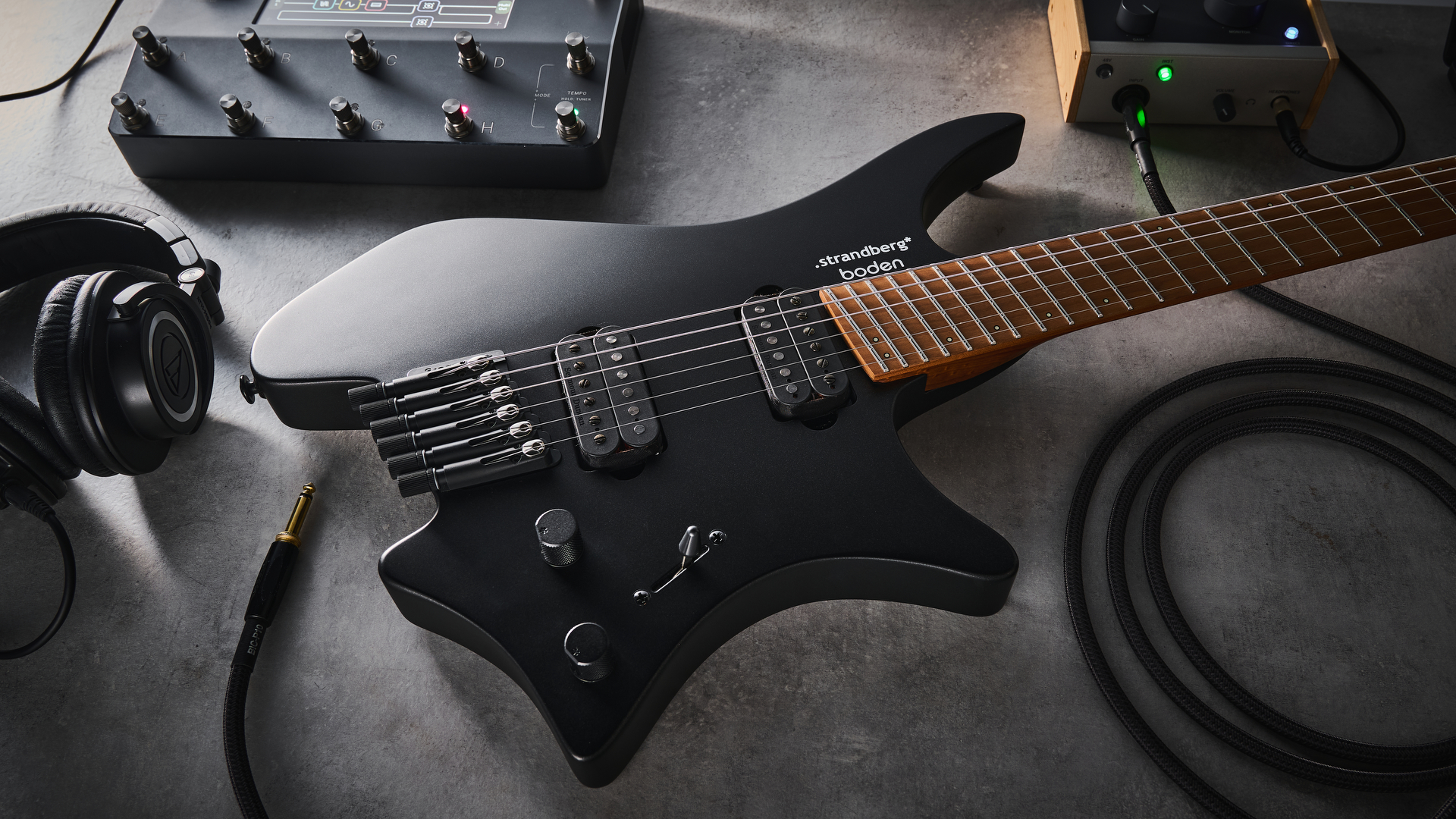
Strandberg's biggest challenge will always be getting people to look past the looks and the tradition-skewing build. But on playability alone, its in a league of its own, and though the changes to its recipe aren't revolutionary, they definitely improve things.
In short, the Strandberg Boden N2 Standard is a space-age sonic weapon that, though not completely reinvented, will further show the doubters what they're missing.
Sure, players new to Strandbergs will need an adjustment period, but that will fly by, and afterwards, it becomes very hard to put this guitar down. It's tonal versatility and heavenly playability that take the chore out of even the most punishing licks to perform, meaning that time and again, I found myself reaching for this guitar over the others on my guitar stand. It can djent, jazz, and just about whatever else you need it to. headless
For Strandberg's more affordable N2 offering, it doesn't feel like quality has been lost in the bid to slim down its price tag, either. Although it still isn't cheap.
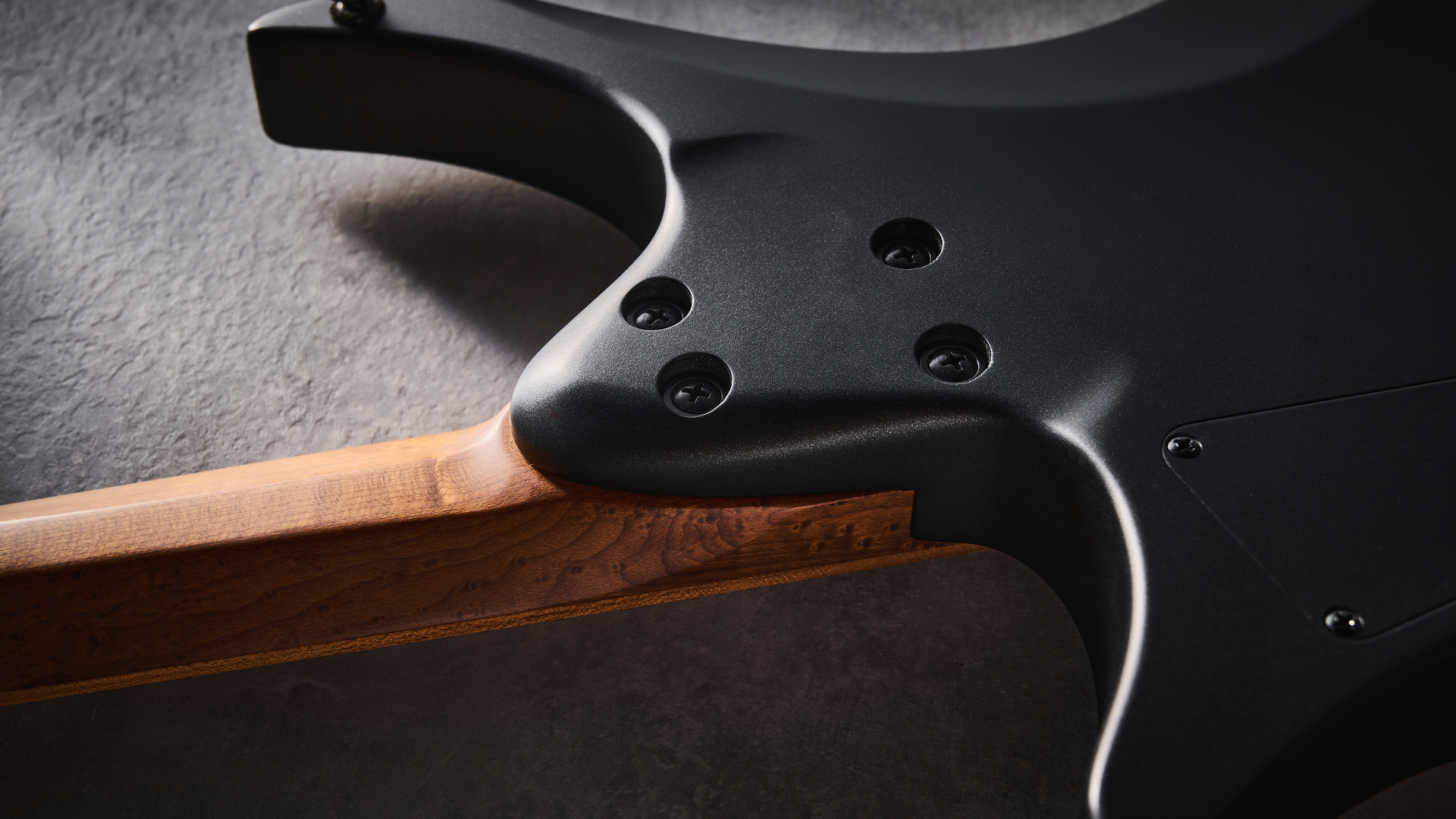
For £700 less, the Boden Essential still stands as the best entry-level option for players of all ability levels, but on the flipside, I don't find myself perusing the Boden N2 Original specs and wishing I had that instead.
I'll be mortified when this guitar gets shipped off to its next destination. Its price tag makes it a little more difficult to give in to my GAS, which is starting to burn like I've spent the night in a dodgy brothel, but when I have it in my hands, it instantly feels like home. It's a worthy investment.
Test |
Results |
Score |
|---|---|---|
Build quality |
Built with care and precision, it's very hard to criticise. Nothing feels cheap compared to higher-end 'bergs. |
★★★★★ |
Playability |
It doesn't feel like a traditional guitar, but you'll quickly discover why it's made this way. Playing is effortless. |
★★★★★ |
Sounds |
Beloved by the prog metal scene but capable of so much more, it's highly versatile, but lacking the spank I wanted in the fourth position without specific tone sculpting. |
★★★★½ |
Overall |
A versatile, supremely well-made guitar that you won't ever want to put down. |
★★★★½ |







